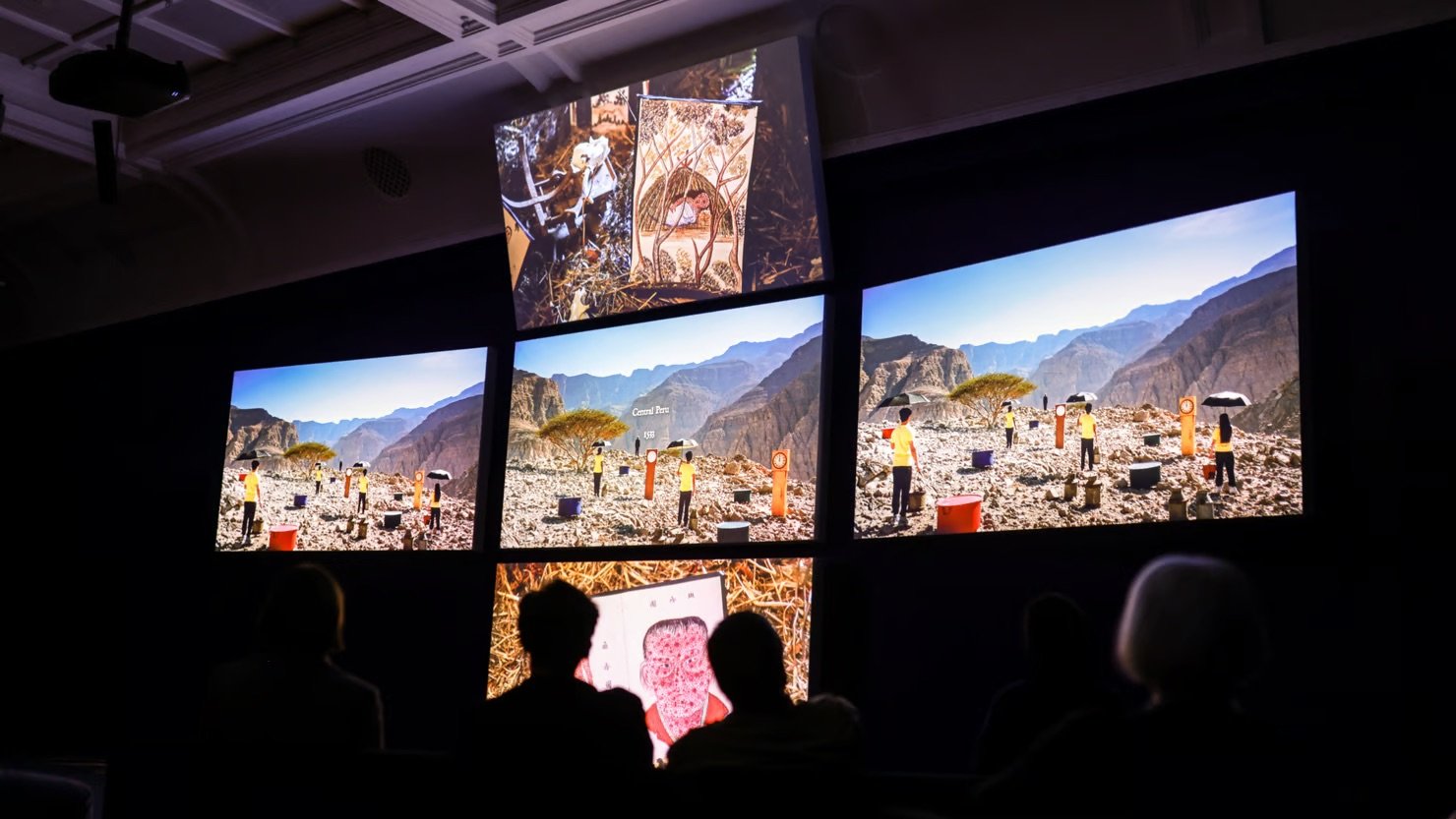Exploring John Akomfrah's "Arcadia": A Cinematic Journey through Colonial Ecological Impact
Introduction: Recently, I had the privilege of attending an exhibition at The Box in Plymouth, featuring the remarkable work of British artist and filmmaker John Akomfrah. The centerpiece of the exhibit, a five-screen film installation titled "Arcadia," captivated me with its striking visuals and profound exploration of the ecological implications of colonialism.
The Cinematic Tapestry: "Arcadia" weaves together a rich tapestry of landscapes from around the globe, delving into the complex narratives of migration and the histories of Western colonization. The film skillfully reflects on The Columbian Exchange, a pivotal moment in the late 15th century that triggered a collision of ecosystems, resulting in environmental change, population growth, and the spread of disease.
Symbolism and Design: The cross-shaped installation serves as a symbolic representation of compass points, connecting to the global implications of colonization. It also stands as a potent symbol of imperialist invasion, emphasizing the impact of historical events on our present and future. Akomfrah's use of Plymouth as a central theme reinforces its significance as the epicenter of colonial adventure in the 16th century.
Narrative Depth: The film's soundtrack, featuring excerpts from "The African," a 19th-century opera depicting the fictional events in Vasco da Gama's life, adds a layer of historical depth. Through meticulous research and a poetic use of sound and image, Akomfrah crafts immersive experiences that invite viewers to engage with significant historical and social issues.
Akomfrah's Impactful Career: John Akomfrah, born in Accra, Ghana, has had a profound impact on contemporary art and moving image. His career spans decades, marked by compelling storytelling, innovative cinematic techniques, and thought-provoking explorations of migration, identity, and history. Akomfrah's involvement in the Black Audio Film Collective, founded in 1982, has left an indelible mark on British cinema.
Reflecting on "Arcadia": In a statement, Akomfrah shares his ironic detachment with the title "Arcadia," highlighting the European fantasy of a new beginning. The piece prompts viewers to consider the unintended consequences of migration and the complex nature of freedom in a world shaped by historical forces.
Pandemic Reflection: Akomfrah's journey in creating "Arcadia" began in 2019, with a significant pause during the COVID-19 lockdown. The artist reflects on the pandemic's timely reminder that powerful forces beyond human control shape our world. The decision to explore how the settling of the New World occurred not through battles but through a cocktail of viruses and germs adds a poignant layer to the narrative.
Conclusion: Attending John Akomfrah's "Arcadia" at The Box was a transformative experience, combining art, history, and cinema in a compelling narrative. The artist's ability to provoke reflection and dialogue on historical and social issues through immersive storytelling reinforces the enduring relevance of his work. As Akomfrah prepares to represent Great Britain at the 2024 Venice Biennale, "Arcadia" stands as a testament to the power of storytelling and the artist's impactful contribution to the world of contemporary art.

